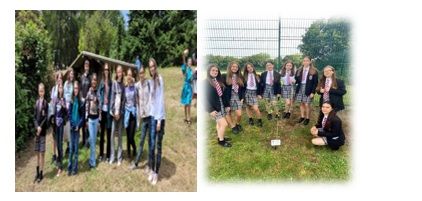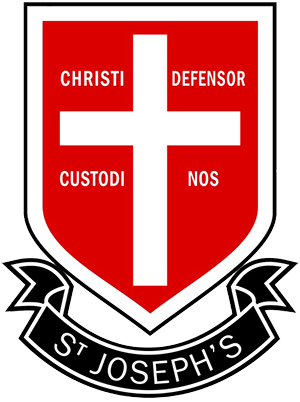Our School
Care for our Common Home

Work by Jack Wynne
The Lord God took the man and put him in the garden of Eden to work it and keep it. Genesis 2:15
At St Joseph’s we care for our common home in all we do. Our world is a gift from God. Global warming affects the poorest people the worst. In 2015, Pope Francis wrote a ‘letter to the world’ bringing together decades of Church teaching in the encyclical, Laudato Si. This letter begins by reminding us that in his canticle our common home is like a sister with whom we share our life and a beautiful mother who opens her arms to embrace us
However he goes on: “This sister now cries out to us because of the harm we have inflicted on her by our irresponsible use and abuse of the goods with which God has endowed her.”
Even before this encyclical our own Catholic Bishops’ Conference had in 2002 already called for urgent action to prevent more damage being done to the earth. “A way of life that disregards and damages God's creation, forces the poor into greater poverty, and threatens the right of future generations to a healthy environment and to their fair share of the earth's wealth and resources, is contrary to the vision of the Gospel.”
Where is it seen at St Joseph’s?
The Year 10 curriculum across various subjects emphasizes the importance of stewardship, aligning with Catholic Social Teaching. In Religious Education (RE), students explore stewardship through the lens of caring for the environment and the sacredness of creation, reflecting the Catholic belief in the sanctity of all reality. The study of CAFOD highlights the role of global responsibility and the need to protect the environment while addressing poverty and injustice. Pupils also learn about the impact of war, on both humanity and the environment, reinforcing the call to preserve our common home.
Subjects like Science and Geography also contribute to this theme by addressing environmental issues, such as energy consumption, carbon footprints, and resource exploitation. In Geography, students analyze human interactions with ecosystems and discuss sustainable strategies. History reflects on the destruction caused by war and the importance of safeguarding the earth for future generations. The curriculum in languages, arts, and technology further encourages the care of God’s creation through sustainable practices and awareness of environmental challenges.
This cross-curricular approach underscores the principle of stewardship, which calls for responsible care of the earth and its resources, promoting sustainability, social justice, and respect for creation.
In our pastoral system we encourage students to look after their school environment by rewarding points for litter picking, we have a sustainability elective running for all students to do their bit to look after our community.

